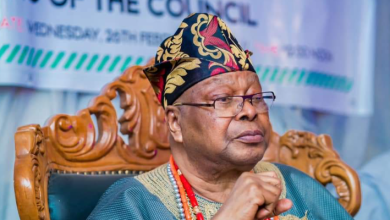President Tinubu Signs Landmark Tax Bills Into Law, Describes Move As Gateway To Economic Growth

President Bola Ahmed Tinubu has signed into law four key tax reform bills aimed at overhauling Nigeria’s fiscal framework and laying the foundation for a more efficient, transparent, and equitable taxation system.
The signing ceremony, held at the State House in Abuja on Thursday, marked what the President called a “turning point” in Nigeria’s economic journey. The new laws—set to take effect in January 2026—are expected to modernise the country’s tax structure, boost investor confidence, and provide relief for low-income earners and small businesses.
“These reforms go beyond streamlining tax codes,” President Tinubu said. “They deliver the first major, pro-people tax cuts in a generation, targeted relief for low-income earners, small businesses, and families working hard to make ends meet.”
The new tax regime is made up of four bills: the Nigeria Tax Reform Act (Ease of Doing Business), the Nigeria Tax Administration Act, the Nigeria Revenue Service (Establishment) Act, and the Joint Revenue Board (Establishment) Act.
The President emphasized that the new framework will help unify Nigeria’s fragmented tax system, reduce the burden on working families, and attract investments by eliminating redundancy and inefficiency. He described the reforms as laying the groundwork for “a Nigeria that is leaner, fairer and laser-focused on unlocking opportunities for all.”
“This is a clear message to the world that Nigeria is truly ready and open for business,” Tinubu said.
Also present at the ceremony were Senate President Godswill Akpabio; House Finance Committee Chair James Faleke; Chairman of the Federal Inland Revenue Service (now renamed Nigeria Revenue Service), Dr. Zacch Adedeji; Chairman of the Presidential Fiscal Policy and Tax Reforms Committee, Taiwo Oyedele; Governors Abdulrahman Abdulrazaq (Kwara) and Hope Uzodinma (Imo); Minister of Finance, Wale Edun; and Attorney General of the Federation, Lateef Fagbemi (SAN).
Senate President Akpabio praised the legislative process as historic, citing the repeal of outdated laws like the Stamp Duties Act of 1901. He noted that Nigeria’s previous tax structure had over 70 fragmented and duplicative levies across federal, state, and local levels.
“You campaigned based on changing the country and the perception of our institutions. By signing these bills today, you are changing Nigeria’s future. Generations unborn will remember you,” Akpabio said.
According to Oyedele, the new laws are “pro-poor,” with over a third of workers in both public and private sectors exempted from Pay-As-You-Earn (PAYE) tax. He added that 90 percent of micro, small, and nano businesses will no longer pay corporate tax, VAT, or withholding tax.
Key expenses such as food, education, healthcare, housing, and transportation have also been exempted from VAT under the new law, offering major relief for Nigerian households.
Dr. Adedeji stated that implementing the reforms from January 2026 would allow sufficient time for public awareness and a smooth transition in line with global best practices.
The Nigeria Employers’ Consultative Association (NECA) also welcomed the legislation, saying it would promote economic growth and ease the tax burden on the Organised Private Sector.
NECA Director-General Adewale Smatt-Oyerinde said, “We have dealt with challenges of taxes, levies and fees for more than a decade. We believe these reforms will finally open up the economy.”
The new laws aim to make Nigeria’s tax system more transparent, efficient, and fair, as part of President Tinubu’s broader economic agenda.




